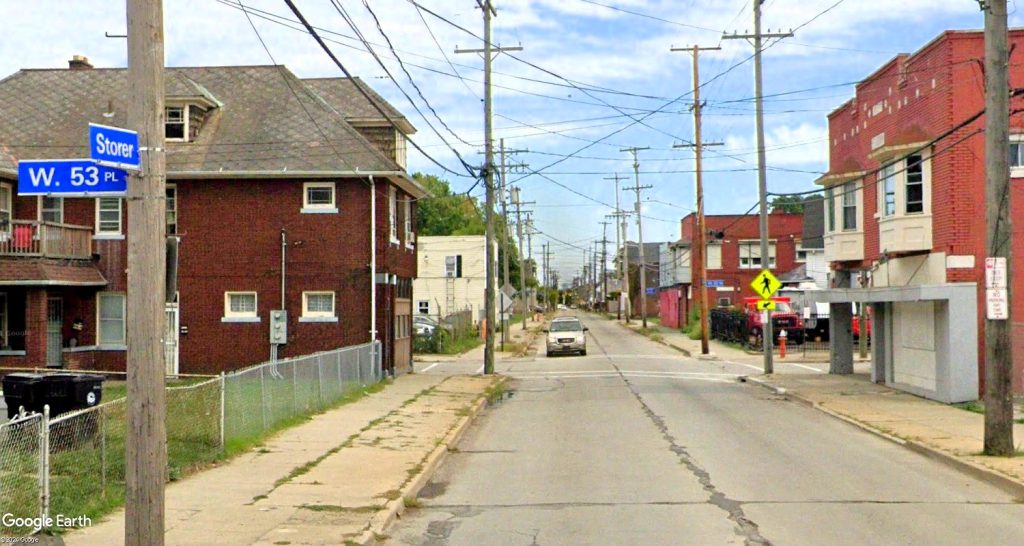
Creating more housing investment will help address a shortage of quality housing in Cleveland, where lenders are often reluctant to invest due to neighborhood instability, discrimination and inequality. So Cleveland is partnering with KeyBank and the Local Initiatives Support Corp. to change that (KJP). CLICK IMAGES TO ENLARGE THEM.
One of the largest housing funds in city’s history
Last evening, a new Cleveland Housing Investment Fund (CHIF) was launched when Cleveland City Council passed legislation that requires the city to provide financing to the new fund. The city’s $18 million commitment leverages $20 million pledged by Cleveland-based KeyBank to boost the development of mixed-income rental housing and home ownership opportunities.
Ultimately, backers of this public-private partnership hope to invest $100 million in Cleveland neighborhoods to stimulate growth in underrepresented communities. The goal is to address systemic inequality and discrimination by creating inclusive, affordable housing for Clevelanders.
Following City Council legislation action yesterday, CHIF will seek corporate and philanthropic investments, work to open an application portal for projects to apply for financing, and begin making affordable housing investments.
“We are proud to support the Cleveland Housing Investment Fund and look forward to playing a role in this important work,” said City Council President Blaine Griffin in a written statement. “City Council hears from residents every day about the need for affordable housing and additional investment in our neighborhoods, particularly in those areas that have been historically underserved.”
The Cleveland Housing Investment Fund represents a landmark opportunity to address housing inequities and promote shared prosperity in Cleveland for generations to come. Additional information and guidance for developers seeking financing will be provided soon.

The variety of Cleveland’s older housing stock is undeniable. This view along Ansel Road in the Hough neighborhood offers an example. From Famicos Foundation’s Notre Dame Apartments at left to the single-family and two-family homes at right, there are options. But much of Cleveland’s older housing stock is in poor condition and needs refurbishment or replacement with financial help that hasn’t been available (Google).
The CHIF is managed by New York City-based Local Initiatives Support Corporation (LISC) Fund Management, LLC (LFM), a wholly owned subsidiary of national nonprofit, LISC, in close collaboration with LISC’s Cleveland office (LISC Cleveland).
LFM manages mission-focused investment funds at a national and local level to include similar affordable housing funds in other cities across the country, including Charlotte, Detroit, Dallas and the Bay Area. The city’s decision to partner with LISC was driven by reported LISC’s track record in community development, affordable housing financing, and collaboration with local governments to foster diverse housing opportunities.
The CHIF will provide debt and equity-like funding to neighborhood-scale housing development with a focus on affordability, developers who have historically been excluded from capital markets, and neighborhood impact. Through this strategy, the CHIF aims to create pathways for wealth generation.
Urgency drives this initiative in Greater Cleveland, where rents are rising at a faster rate than most United States metro areas, and demand has created a pressing need to build more affordable housing for low-income, working-class, and middle-class residents. More housing supply would address that, and local leaders hope to add thousands of new housing units per year.
“The availability of affordable, quality housing is an intractable challenge that we need strong collaboration to solve. It is critical that we drive private investment in our neighborhoods that have not seen the same level of investment as other areas of the city,” said Mayor Justin Bibb.

Cleveland’s Glenville neighborhood, especially the area along St. Clair Avenue in the East 90s, has seen a lot of abandonment in what was a dense, vibrant neighborhood. To restore the community will take nontraditional investment from new sources like the new Cleveland Housing Investment Fund (Google).
“Establishing the CHIF as a framework for this effort is a vital step towards tackling the housing challenges Clevelanders face, and I am grateful to the partners for their support,” Bibb added.
The city’s financial commitment to CHIF is further bolstered by a commitment from KeyBank Community Development Financial Institution Lending and Investment group (KeyBank CDFI), a division of KeyBank Community Development Lending and Investment.
KeyBank CDFI delivers investments, loans and banking products and services to mission-driven CDFI partners that help expand access to the economic mainstream for low-income families and communities. KeyBank is headquartered in Downtown Cleveland.
“Our $20 million commitment from our CDFI team in the Cleveland Housing Investment Fund underscores our commitment to affordable housing solutions that transform communities, providing families with safe places to live and grow,” said Brian Maddox, national team leader for KeyBank CDFI Lending and Investment.
“We are proud to partner with LISC and the City of Cleveland to help bring affordable housing, opportunities and change to neighborhoods across Cleveland,” he added.

Although still mostly intact, some west-side Cleveland neighborhoods are experiencing high rates of poverty and growing abandonment as the metro continues to sprawl outward without much new population growth. More investment counterforces to those which encourage urban sprawl are needed to maintain older neighborhoods and prevent further abandonment (Google).
“The affordable housing crisis is top of mind for leaders across the country and especially at LISC,” said LFM Interim President Tiffany Durr. “The public-private partnership in Cleveland demonstrates what is possible when we collaborate and use our expertise to leverage significant resources to expand access to affordable housing for all.”
“LISC values its impactful partnership with the City of Cleveland and KeyBank and looks forward to continuing to work together to advance equity and opportunity in the communities our organizations serve,” Durr explained.
Kandis Williams, executive director of LISC Cleveland, highlighted LISC’s longstanding dedication to the Cleveland community.
“Since opening our first office here in 1981, LISC has remained steadfast in investing in the prosperity of Cleveland neighborhoods,” said Williams. “Through our comprehensive programs and initiatives, we have supported local organizations and catalyzed positive change in the areas of affordable housing, economic development, and financial stability. The CHIF is just one more tool we eagerly anticipate leveraging for the benefit of Clevelanders.”
END




